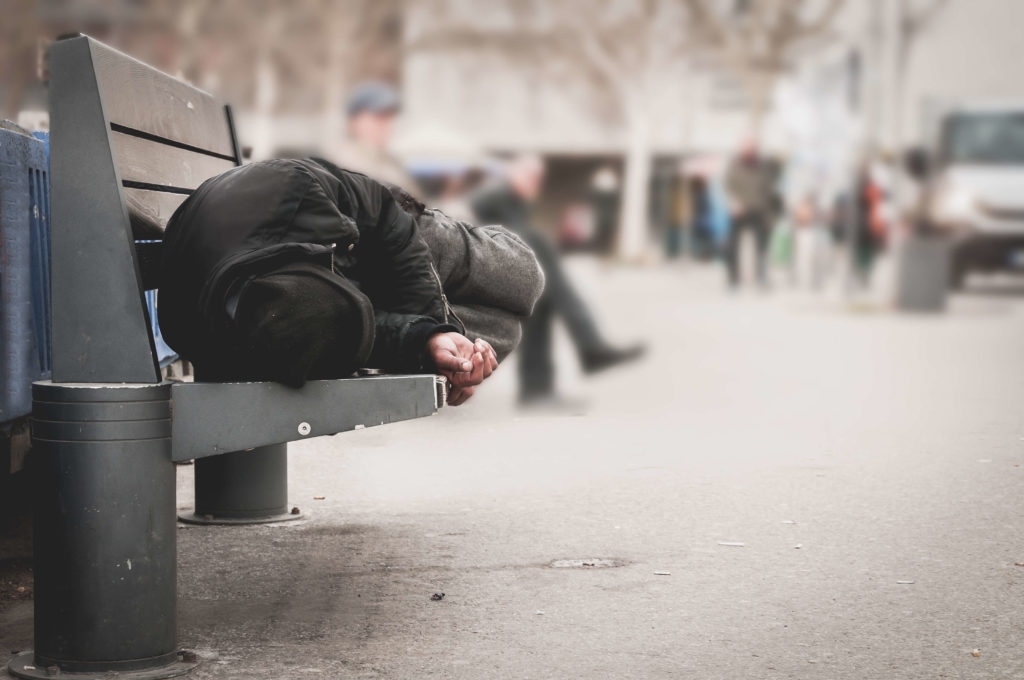The Supreme Court on Monday said it will allow a lower court’s ruling stand that protects the rights of the homeless to sleep on sidewalks or in public parks if they don’t have anywhere else to go, which is a significant setback for cities in California.
The justices refused to take the case from Boise, Idaho, on without comment or dissent.
From the L.A. Times:
The outcome was a significant victory for homeless activists and a setback for city officials in California and other Western states who argued the ruling from the 9th U.S. Circuit Court of Appeals undercut their authority to regulate encampments on the sidewalks. The 9th Circuit had agreed with lawyers for the homeless who argued that prosecuting people for sleeping on the sidewalks violated the 8th Amendment’s ban on cruel and unusual punishment if a city failed to provide adequate shelter.
The 9th Circuit — which has jurisdiction over California and eight other states out west — ruling said a city ordinance “violates the 8th Amendment insofar as it imposes criminal sanctions against homeless individuals for sleeping outdoors on public property, when no alternative shelter is available to them.”
A recent White House report notes that half of America’s homeless population lives in California.
According to the L.A. Times, officials in Los Angeles expressed disappointment because the ruling leaves the law unclear about what they can do to curtail masses of people sleeping on sidewalks and in parks. Officials joined with Boise in asking the Supreme Court to hear the case and said it was “never an attempt to criminalize the homeless; rather, it was a pursuit of a legal framework that is clear — in comparison to a status quo that is ambiguous and confusing.”
“Letting the current law stand handicaps cities and counties from acting nimbly to aid those perishing on the streets, exacerbating unsafe and unhealthy conditions that negatively affect our most vulnerable residents,” he said.
Los Angeles Mayor Eric Garcetti said via statement that “homelessness won’t be solved by moving people from one street to another. Our focus will remain on providing services to save lives, keeping our neighborhoods clean and healthy, opening shelters to help get people indoors more quickly, and building permanent units to keep them under a roof for good.”
Lawyers for the homeless in Boise pointed out that in 2014 the city told its police not to enforce misdemeanor ordinances that banned sleeping or camping in public as long as there weren’t any other shelter spaces available, which the city thought would end the lawsuit. However, the 9th Circuit issued a more broad ruling in 2018.
The Supreme Court justices then had to decide whether or not there is a constitutional right to sleep on a sidewalk in a case in which the city wasn’t enforcing the ordinances that were being challenged.
The case began more than 10 years ago when a number of homeless people were given citations of $25 to $75 for camping on sidewalks. They then joined a lawsuit challenging the fines as unconstitutional. According to the L.A. Times, a large number of West Coast cities urged the Supreme Court to hear the appeal of the 9th Circuit ruling.
The “creation of a de facto constitutional right to live on sidewalks and in parks will cripple the ability of more than 1,600 municipalities in the 9th Circuit to maintain the health and safety of their communities,” lawyers for Boise wrote.
“Nothing in the Constitution … requires cities to surrender their streets, sidewalks, parks, riverbeds and other public areas to vast encampments,” the lawyers wrote.
People sleeping, urinating and defecating on sidewalks has of course long been a plague in cities like Los Angeles and in 2006, the 9th Circuit ruled that the city can’t enforce laws against people sleeping in public. So rather than appeal the ruling, the city reached a settlement with lawyers for the homeless, agreeing not to enforce the ordinance from 9 p.m. to 6 a.m.
